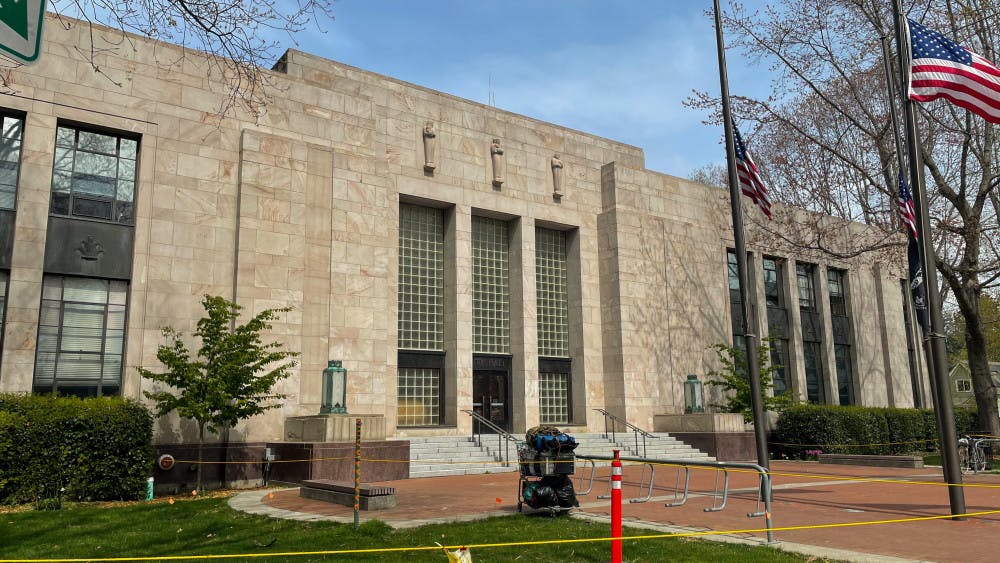
After the tragic murder of George Floyd last summer, and the following rallies, Bellingham and Whatcom County officials held a four-part listening series on race and justice. These sessions gave the community an opportunity to share their experiences with the purpose of resulting in effective change.
One of the desires from the community during these sessions was a planning group that would advance a racial equity commission, County Executive Satpal Sidhu said.
Whatcom County Council voted unanimously on April 20 to fund $45,000 for the Chuckanut Health Foundation to plan this commission.
“The main purpose or goal of the commission is to bring the community together,” Sidhu said.
Sidhu said the racial equity commission will look at embedded inequalities and make local governments and organizations aware of where changes can be made. He said the commission will contribute to a more fair and equitable society for everyone.
On April 26, the Bellingham City Council also voted unanimously to match the County’s funding for the commission.
Bellingham City Mayor Seth Fleetwood, who was present for the listening sessions last summer, is enthused about the possibilities of the commission.
“It’s an important opportunity,” Fleetwood said. “I think it’s something that needs to happen in every community in the nation.”
Danielle Franco, a Bellingham resident, wrote in a Facebook message, “I just know from my own experience (being non-white and from a culturally diverse area) that racism is pretty ingrained in American culture, often not seen as racism, and is totally a thing even in seemingly progressive areas.”
In August of 2020, The Bellingham Herald reported racist graffiti increasing across Whatcom County in response to the Black Lives Matter movement.
Whatcom County is predominately white, with 86.2% of the population being white according to 2019 U.S. Census data. Marginalized voices should be the loudest on the commission due to this disparity, Franco said.
The Chuckanut Health Foundation’s website states that health equity is a long-term strategic priority for them. Their racial equity commission page says: “This work will serve to amplify voices of people who have been marginalized and to bring philanthropic resources to community-based ideas and efforts to end systematic barriers to health such as racism, discrimination, and poverty.”
In a Facebook post, the foundation detailed how they will provide opportunities for the Whatcom community to “engage with the commission and provide input into its development.” A community visioning summit is scheduled to take place on May 22, with more details to be announced on their Facebook page. Community members are invited to apply to be part of a monthly stakeholder group in the second half of the year according to the post.
Professor Lori L. Martin, interim chair of the Department of African American Studies at Louisiana State University, is an author of multiple textbooks related to race. Her areas of expertise include persistent racism and economic disparities, as well as race and ethnicity relations.
Martin wrote in an email that the racial equity commission goals could include:
- Identification of the depth and breadth of the harms experienced by disadvantaged racial groups over time.
- Testimony from survivors and their families.
- Archival of relevant government documents, newspaper articles, and reports from community-based organizations and other supporting artifacts.
- Recommendations for righting past, present, and future harms.
- Commitment to periodically reassessing and re-evaluating the findings and make changes as needed.
She also said the commission should include local historians, scholars who specialize in the studying of race, historically Black community-based organizations, Black business owners, Black educators — Pre-K through 12th grade — local elected officials and interested community residents representing multiple generations.
“It is important that the creation of the commission is just one part of a broader plan to address the legacy of racial injustices as well as ongoing social justice issues related to race,” Martin wrote.
Bellingham City Council Member Hannah Stone used a checklist analogy. This isn’t a box the council is looking to check off but instead will create a new one that the council will continually work to fill in for everything they do going forward, she said.
Stone said she wants to make it clear that the commission is a step in the process of the city's ongoing commitment to an investment in the hard work that’s yet to come.
Fleetwood said he expects a proposal for a commission by the end of the year.
“This work is one of our responses to the rightful public insistence that there’ll be real and meaningful change, that the safety, dignity and humanity of all people be our priority,” Fleetwood quoted from his earlier statements to the City Council.
Kelton Burns is a reporter for The Front and a third-year Journalism: News/Editorial major. His work focuses on city news, usually related to City Council. He enjoys reading game reviews in his free time. You can reach him at keltonburns.thefront@gmail.com





